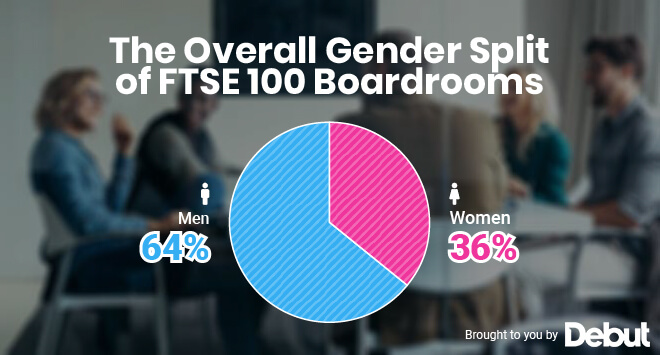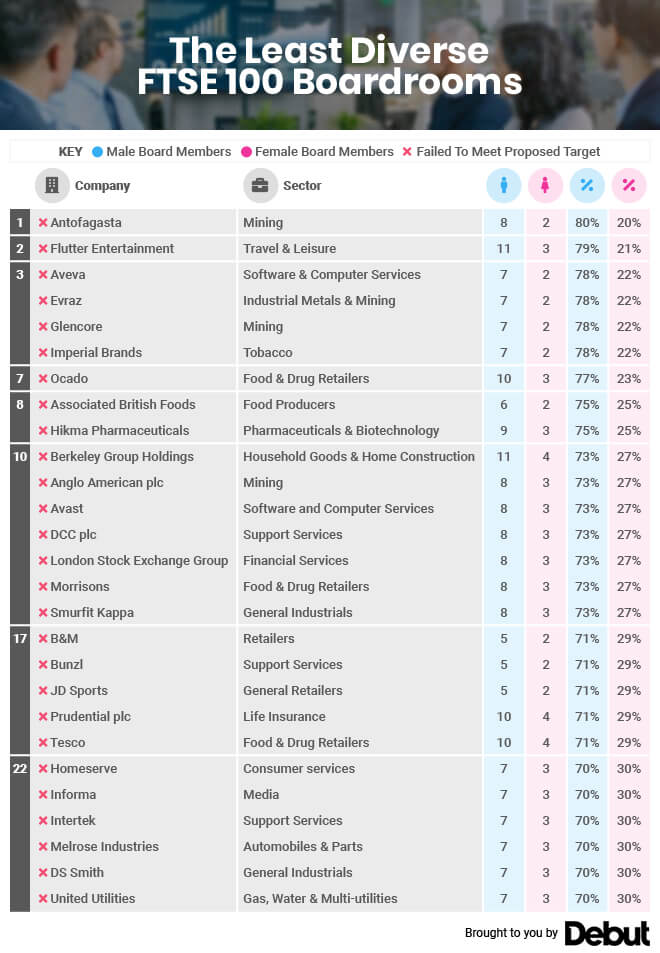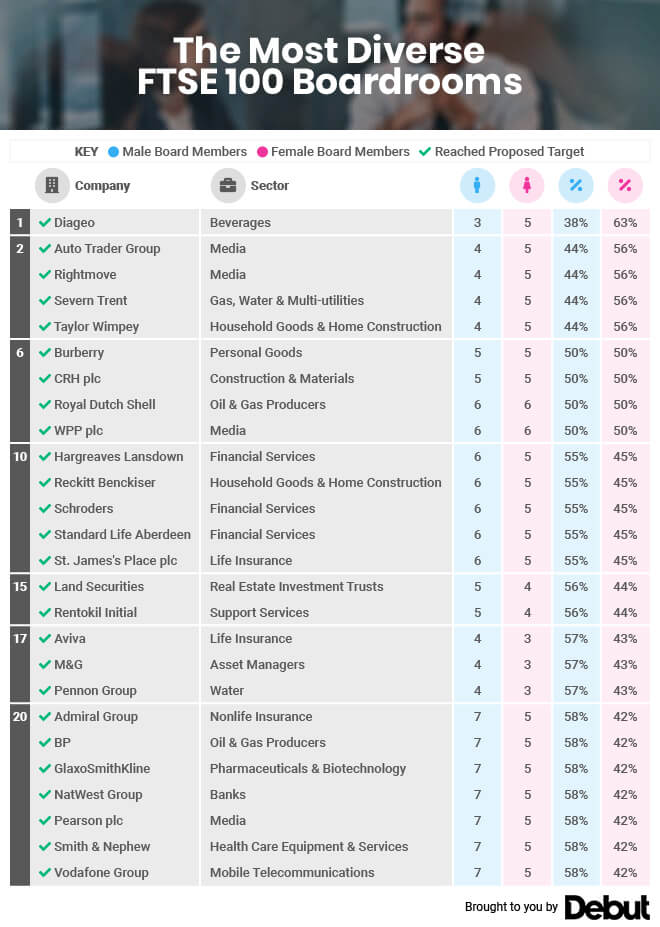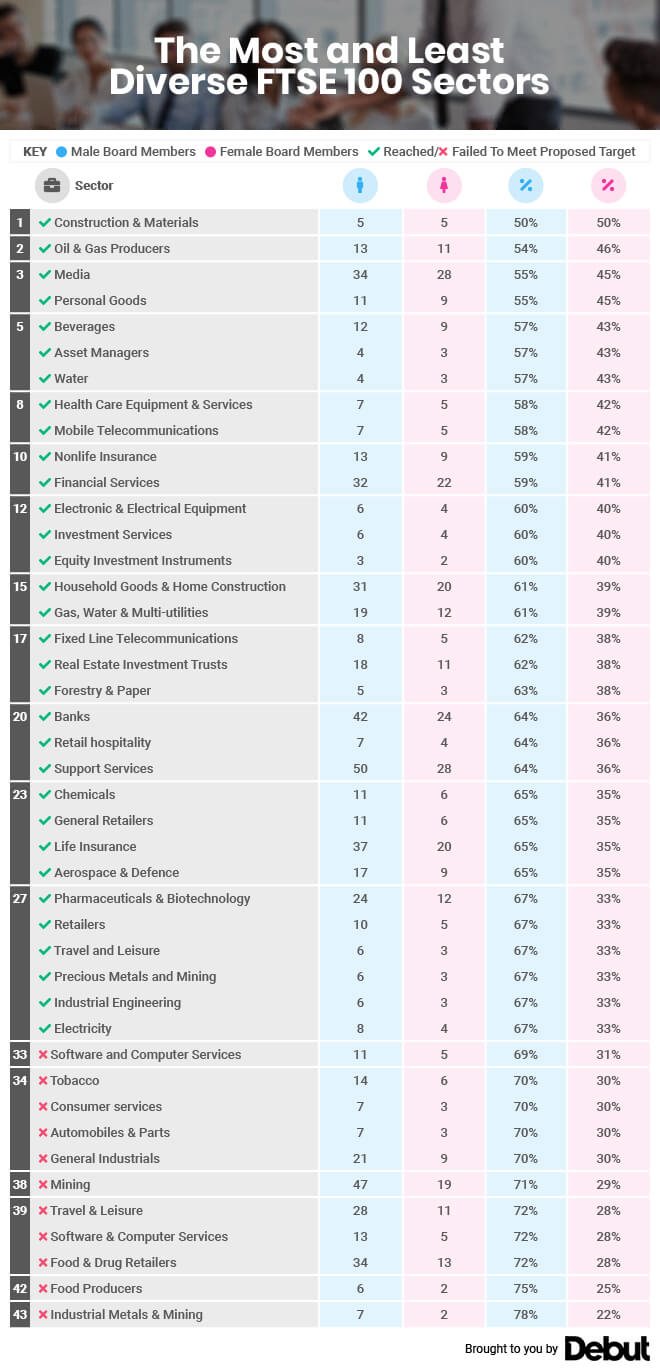

The boardrooms of the country’s top businesses have long been male-dominated spaces, with the Government recommending back in 2015 that the boards of all FTSE 350 companies should be 33% by 2020.
So, five years later, just how many of the 100 biggest companies the UK have actually hit that target?
The Overall Gender Split of FTSE 100 Boardrooms

Looking at the current makeup of the boards of the FTSE 100 reveals that on the whole, things do seem to be improving, with women taking 36% of current board roles.
But while this meets the target set out five years ago, it’s still some way from a 50-50 split, which just nine out of 100 companies have achieved (with just five currently employing more female directors than male) and almost a third of companies are yet to meet the 33% target.
The Most & Least Diverse FTSE 100 Boardrooms

While all of the FTSE 100 companies had at least two women on their board, there was a number where women made up less than a quarter of board members, including Antofagasta (20% female) and Flutter Entertainment (21%).

On the other hand, many companies are leading the way, going well beyond the 33% target, to achieve an equal balance of at least 50-50 at board level, including Diageo (63% female), Auto Trader Group, Rightmove, Severn Trent, and Taylor Wimpey (all 54%).
The Most & Least Diverse FTSE 100 Sectors

Looking at how things break down across different sectors, the construction and materials industry was the only one to achieve a 50-50 male-female split at boardroom level, closely followed by oil and gas producers (46% female) and media and personal goods (both 45%).
However, 11 (28%) of industries still fell below the government target, with those in the industrial metals and mining industry having the fewest female board members (22%), followed by food producers (25%) and food and drug retailers (28%).
Search and apply for graduate jobs with Debut from some of the biggest UK’s FTSE 100 companies.
Methodology
All data sourced from websites of the FTSE 100 companies as of 30/9/2020.


